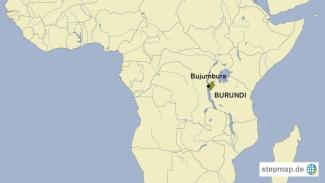Freedom of the press
Split country, hushed-up media

In April 2015, the ruling party CNDD-FDD announced that incumbent President Pierre Nkurunziza would run for office again after 10 years in power. The Burundian constitution limits terms to two. After the announcement, people of different political persuasions took to the streets in protest, with young people leading peaceful rallies in Bujumbura, the capital. Then presidential guards fired live rounds on them. Some in the security forces decided to overthrow Nkurunziza, but their coup failed. The ensuing violence forced many people into exile.
Journalists remaining in the country are now working in constant fear and practice self-censorship on matters involving the security forces. A presidential spokesman has claimed that journalists can freely exercise their profession, but Marie-Soleil Frère, media expert on Central Africa, disagrees: “After the coup attempt, the people of Burundi are denied access to independent and pluralistic information,” she says. Intellectuals are the main target of suppression.
Journalist Jean Ndayisaba says that repression affects all citizens, including those whom journalists interview. “A man told me that he knows who is the murderer of his family members, but he refused to name the perpetrators, fearing for his own safety.” According to Ndayisaba, government employees can’t speak freely either. In general, people are afraid to speak about human-rights violations.
The situation is different for the Burundian journalists in exile. They are free to report on the current situation, and they disseminate reports on the government’s violation of human rights on social networks. They provide a forum for people whose relatives have been abducted, tortured or killed to speak out.
“We are far away and therefore free to speak. It displeases the government in Bujumbura, but this is our strength,” says Valéry Muco of Inzamba, a radio programme produced in Rwanda’s capital Kigali. He says that Burundi’s media has been blacked out since May 2015. “Here abroad, we are guided by journalistic ethics,” he says.
Marc Niyonkuru is a freelance journalist from Burundi.
nimarc35@gmail.com







